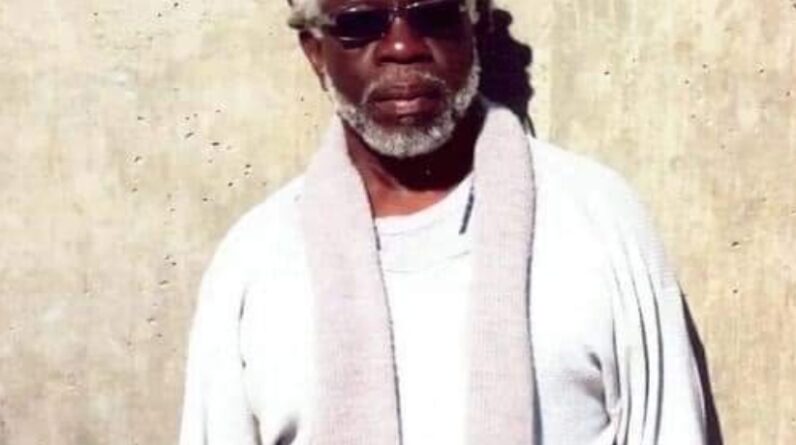
“The fight was never for me, but for the will of the people,” Mutulu Shakur declared in a petition for his release.
The grassroots community has been deeply saddened to learn that Dr. Mutuku Shakur, 72, a Black Liberation Army activist and Tupac Shakur’s stepfather, succumbed to bone marrow cancer on July 6. A janazaa was held at Mosqjid Ash Shura in Atlanta last Monday, presided over by Imam Frukwon. Shakur’s body was also buried there.
Widespread tributes to Shakur have been posted on social media.
“Dr. Mutulu Shakur taught us that “people fight for liberation because they love.” [the] people,” the New Afrikan People’s Organization and the Malcolm X Grassroots Movement said in a joint statement. “He will always be remembered for his continued commitment to an independent and socialist New Africa and his battle cry, ‘Straight Ahead!'”
As a political prisoner of war, Shakur had been imprisoned for 36 years before being granted compassionate parole in December 2022. He reportedly stayed with his family in Southern California. Although Bureau of Prisons doctors said in May 2022 that Mutulu had less than six months to live, it wasn’t until after an October hearing that the federal parole board granted his release.
RELATED: Mutuku Shakur, 72, a Black Liberation Army activist and Tupac Shakur’s stepfather, succumbed to bone marrow cancer on July 6.
Talib Shakur mentioned his brothers Mopreme, Sekyiwa, Nzingha, Ayiza and Chinwa; before reflecting on his father: “He changed the lives of many people here and while he was in captivity. I have been in contact with several people who were incarcerated with him, who have said how much he has helped them. He is a healer for our community. He did it because of the love he has for his people. I am honored to be one of the children of Dr. Shakur”,
“Comrade Mutulu Shakur: veteran of the Revolutionary Action Movement, leader of the Republic of New Afrika and the Black Liberation Army, fighter and political prisoner of 36 years passes to the ancestors. We remain faithful to your path,” he said. post @mxmovement.
His transition was announced via Instagram the next day with an illustration of Shakur and a caption that read: “Our beloved Mutulu joined the ancestors this morning at home with family. Please bless – him on his way and we will share more soon. Rest in power and love.”
Born Jeral Wayne Williams on August 8, 1950, Shakur became known as a healer, administering acupuncture to treat heroin addiction in New York during the 1970s. He also advocated comprehensive health care. He married Tupac’s mother, Afeni, in 1975, and they had a daughter, Sekyiwa, but divorced in 1982.
“Mutulu was the quintessential re-Africanized fighter of the New African Freedom,” said his comrade Tarik Haskins. “He was a healer. After seeing an alarming and horrific number of black and Puerto Rican people succumb to drug overdoses and the AIDS epidemic, he stepped forward to learn and apply acupuncture to save our people . He multiplied his efforts by training people to become acupuncturists.”
Shakur went underground after authorities sought him for his alleged role in the $1.6 million “heist” of a Brinks armored truck in 1981, which killed two police officers and a security guard. He was finally arrested in 1989, convicted on RICO charges and sentenced to 60 years in prison. After serving half of his 30-year sentence, he became eligible for parole in 2016.
“More than a comrade, we were true friends,” said elected activist Charles Barron. “Mutulu was an iconic revolutionary and inspired many others. It is a sad loss and I am angry that this colonial, capitalist and vicious system kept him in prison all these years until he was close to death.”
Barron said Shakur was always optimistic and a devoted family man who “touched and saved many lives with his acupuncture clinic. He had a deep love for his people. Revolution never dies.”
Although he had a clean institutional record and mentored other inmates, he was denied parole nine times, including during the COVID-19 crisis.
“He was a close friend, comrade, brother,” Sekou Odinga said. “Mutu was motivated by love and committed to the struggle of black and brown people. He did a very good job. He was there until the day he died. We will continue his work. He lived what he believed “.
There will be local memorial services next month.
Like this:
Loading…
Related
[ad_2]
Source link





